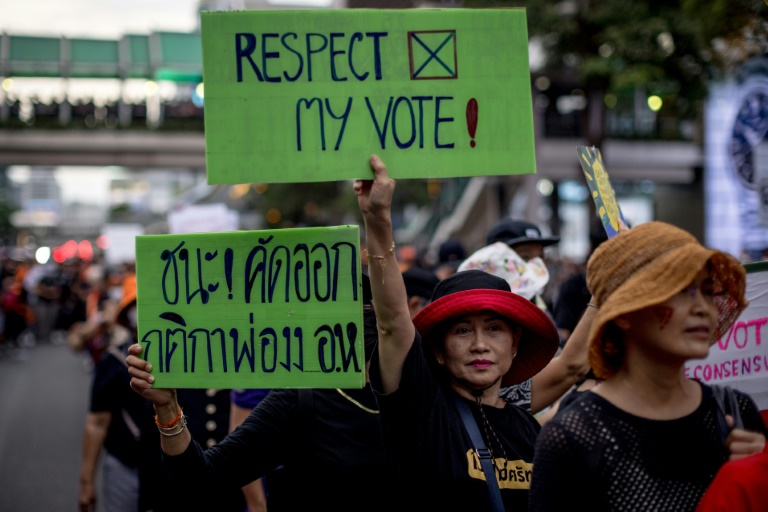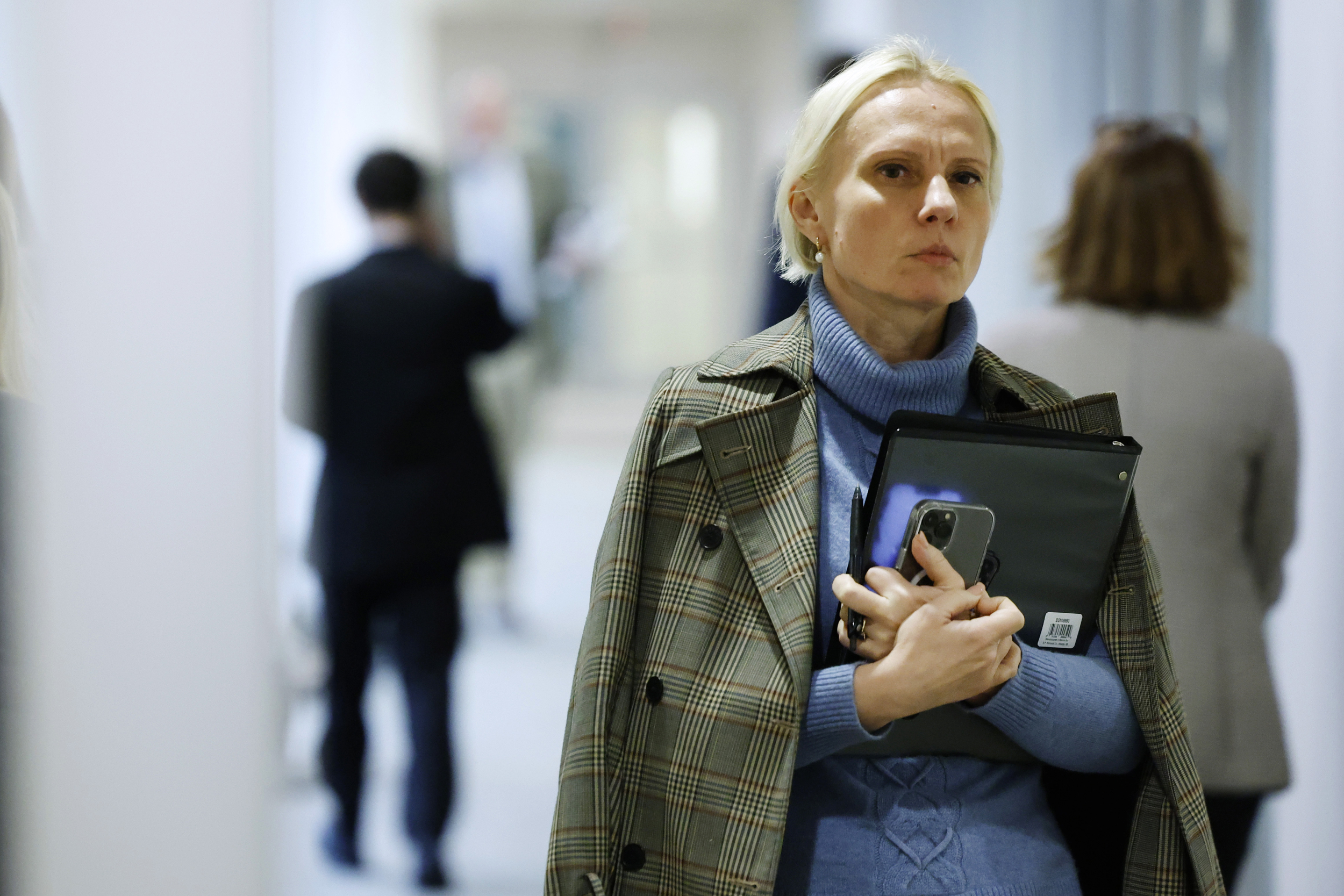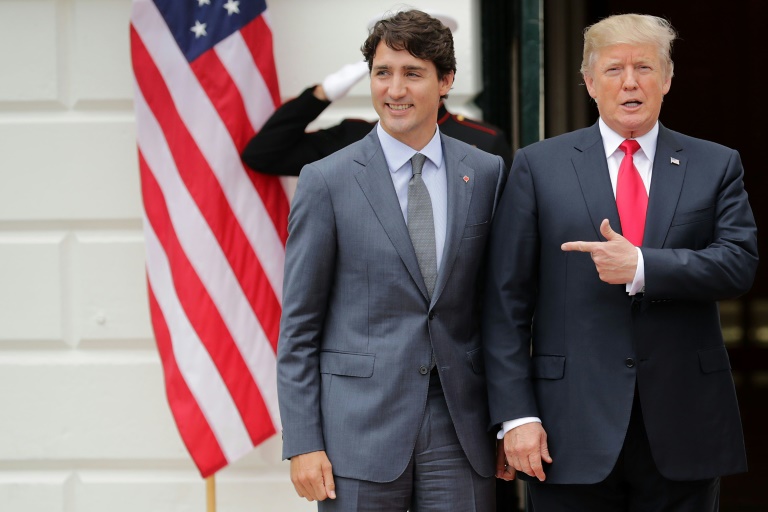AFP
Thailand’s political deadlock shows no signs of ending any time soon, as the kingdom’s lawmakers broker, bicker and break alliances months after national elections with a new prime minister still nowhere to be seen.
The renewed political instability has revived long-held fears in a country that has seen more than a dozen military coups in the past century.
So what is happening, why, and what might come next?
Thailand held elections in May, returning a shock win for the progressive Move Forward Party (MFP), buoyed by many Thais’ desire for change and an end to almost a decade of army-backed rule.
But their plans, which included amending strict royal defamation laws, spooked the powerful conservative establishment.
An eight-party coalition headed by MFP failed to secure the young reformist candidate Pita Limjareonrat the prime minister’s job last month.
MFP won the most seats in the lower house with 151, reaching 312 with their coalition partners.
But to become PM candidates need 374 ballots for a majority in a vote of both houses of parliament — including 250 junta-appointed senators — a system designed by the generals.
Thanks to the MFP’s reformist stance — especially around the royal defamation laws, but also pledges to tackle powerful business monopolies — they swayed just 13 senators, effectively ending Pita’s bid for power.
Pita was also suspended as an MP by the Constitutional Court over his ownership of media shares, prohibited for Thai lawmakers, and could yet be barred from politics.
All eyes are now on MFP’s coalition partner Pheu Thai, which came second in May’s election.
Pheu Thai is seen as a vehicle for the Shinawatra political clan, whose members include two former prime ministers ousted by military coups in 2006 and 2014.
They formally broke with MFP on Wednesday after weeks of speculation, announcing businessman Srettha Thavisin as their PM candidate.
Pita has said previously his party would support any Pheu Thai nominee but his supporters are furious and small protests against PT have appeared.
They both oppose military rule, but MFP and Pheu Thai represent two very different sides of Thai society.
MFP supporters have agitated for more radical change while Pheu Thai followers, who tend to be older and mostly rural-based, have been turned off by the calls for rapid reform.
It all bubbled over last week when a Pheu Thai leader was photographed sharing an iced drink with leaders of army-backed parties despite election promises to never work with military-aligned groups.
Overshadowing everything is MFP’s refusal to back down over amending the royal defamation laws that protect King Maha Vajiralongkorn, and which can carry jail terms of up to 15 years.
A third vote to choose a PM, scheduled for Friday, has been postponed while the Constitutional Court considers another case related to Pita’s nomination.
Before putting Srettha to a vote, Pheu Thai must ensure it has enough backing to get him through.
It has been in talks with senators as well as other lower house parties to form a new coalition, though details have not been announced.
As ever, two spectres loom over the whole process — the army and former premier Thaksin Shinawatra.
Still regarded by many as Pheu Thai’s true string-puller, Thaksin is expected to return to the kingdom on August 10 after 15 years in self-exile.
And in a country with such a rich history of coups, further military intervention can never be ruled out.
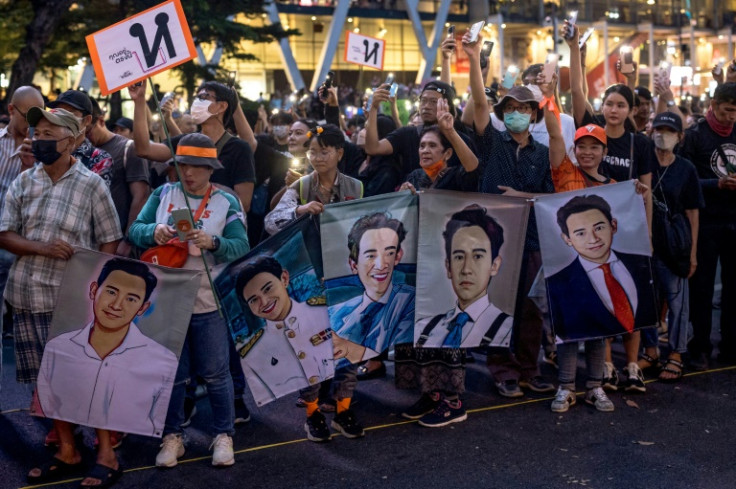
AFP
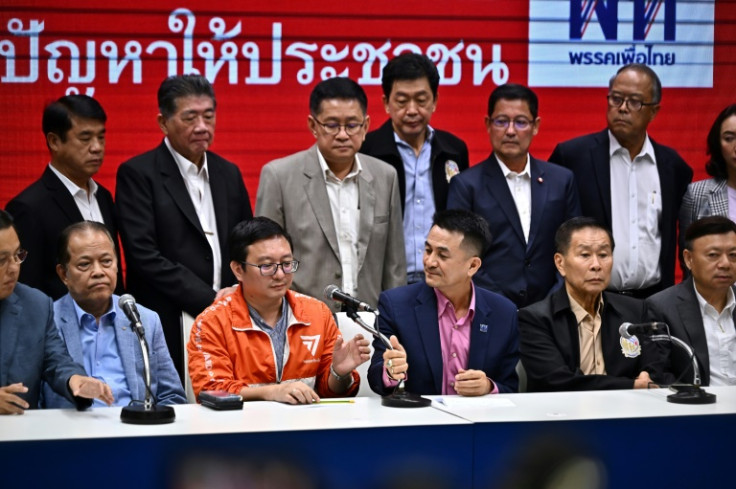
AFP
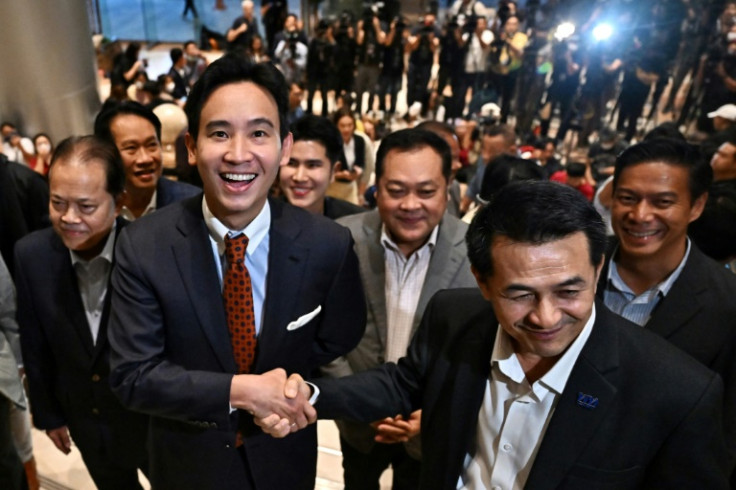
AFP

